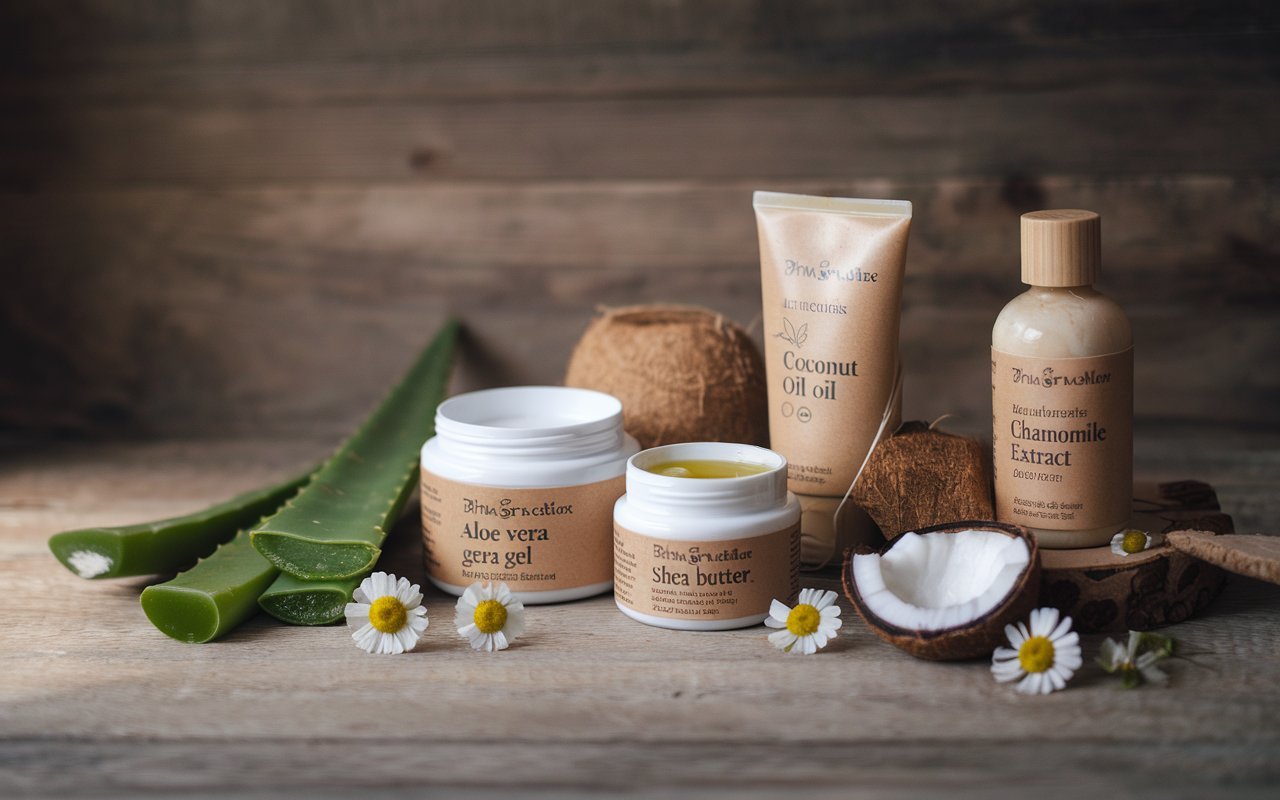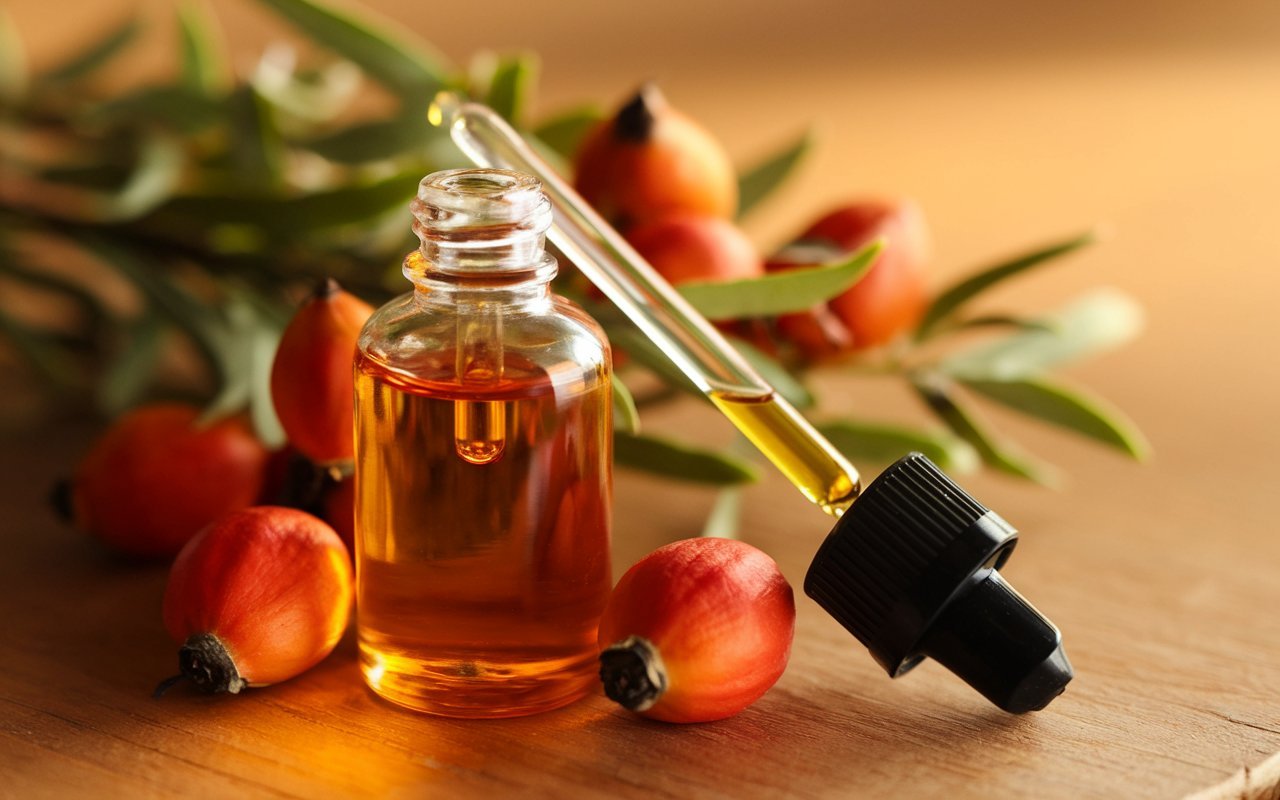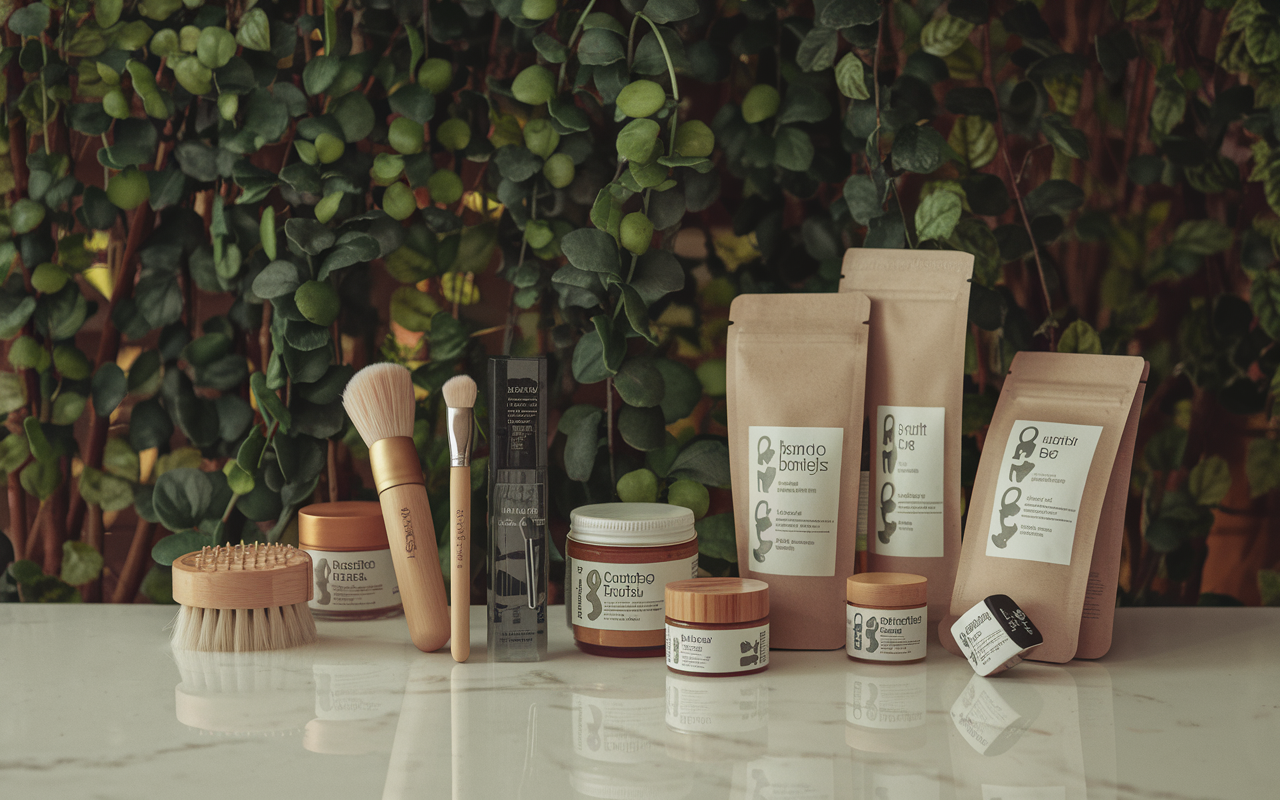
Introduction
In a world overflowing with skincare products promising miracle transformations, organic skin care offers a breath of fresh air. There’s something magical about knowing exactly what’s in the products we’re putting on our skin, especially when they’re sourced from the heart of nature. Organic skin care is more than a trend—it’s a movement towards embracing natural ingredients that love our skin as much as we do. When we choose organic skin care, we’re choosing to let nature take the lead, nourishing our skin with ingredients as pure as they are powerful.
Understanding Organic Skin Care
So, what exactly makes a product “organic”? Organic skin care products use ingredients that are grown without synthetic fertilizers, pesticides, or genetically modified organisms (GMOs). This purity is what makes organic skin care so gentle yet effective. By opting for organic skin care, you’re choosing products free from harmful chemicals and synthetic additives, allowing your skin to experience the true benefits of nature’s own remedies. This purity also contributes to environmental sustainability, making each organic product an investment in both our health and our planet.
Why Less is More: The Power of Simple Ingredients in Organic Skin Care
One of the joys of organic skin care is its simplicity. When you pick up an organic skin care product, you’re likely to find a short list of ingredients—each one chosen for a specific, beneficial purpose. This simplicity is not only refreshing but allows each ingredient to shine, offering your skin concentrated benefits without the risk of irritation from synthetic fillers. With fewer ingredients, organic skin care minimizes the chance of adverse reactions, making it ideal for sensitive skin and those prone to allergies.
Let’s explore seven timeless ingredients that truly define the magic of organic skin care.
1. Aloe Vera
Aloe vera, the humble green succulent, has long been cherished as a skincare miracle across various cultures. Its gel-like consistency is packed with water and enriched with skin-loving nutrients, such as vitamins C, E, and beta-carotene. These nutrients not only nourish the skin but also offer hydration that sinks deep, leaving the skin looking and feeling rejuvenated.
Hydration and Skin Healing Properties
Aloe vera’s cooling, soothing properties make it ideal for calming inflamed or irritated skin. Whether you’re dealing with sunburn, acne, or dryness, aloe vera provides gentle relief. Its lightweight nature allows it to penetrate deeply without leaving a heavy residue, making it a universal hydrator for all skin types. The plant’s unique ability to heal and restore damaged skin cells helps promote a radiant, healthy glow that feels as pure as the earth itself.
2. Coconut Oil
Coconut oil, with its rich, creamy texture, is nature’s answer to deep moisturization. Its luxurious feel is only matched by its remarkable ability to nourish and soften even the driest skin. Composed of essential fatty acids, coconut oil penetrates the skin barrier to provide intense hydration that leaves the skin supple, smooth, and beautifully radiant.
Anti-inflammatory and Antibacterial Benefits
Coconut oil’s true magic lies in its antibacterial and anti-inflammatory properties, which help combat acne-causing bacteria and soothe irritated skin. By using coconut oil, you’re embracing a multitasker that not only provides moisture but also protects your skin from impurities. This potent oil brings the essence of tropical nature to your skincare routine, leaving your skin deeply cared for and resilient.
3. Green Tea Extract
Green tea, the celebrated antioxidant powerhouse, offers incredible benefits for the skin when used as an extract. Known for its ability to protect against free radicals, green tea extract is often hailed as a “fountain of youth” in organic skin care. Its powerful antioxidants protect skin cells from damage, allowing you to maintain a youthful glow and protect against premature aging.
Protection Against Environmental Damage
The antioxidants in green tea form a protective shield for your skin, defending it from pollution and UV damage, which are primary contributors to skin aging. This potent extract works diligently to keep skin healthy, vibrant, and youthful. When you incorporate green tea into your organic skin care routine, you’re embracing a natural defense against environmental stressors, helping you glow with confidence every day.
4. Shea Butter
Shea butter, harvested from the nuts of the African shea tree, is a revered ingredient in organic skin care for its rich, creamy texture and nourishing properties. Shea butter is packed with vitamins A and E, essential for maintaining skin health, elasticity, and resilience. It is a true gift for anyone seeking deep moisture and a smooth, healthy complexion.
Nourishment and Conditioning for Dry and Sensitive Skin
Shea butter melts effortlessly into the skin, offering a luxurious level of hydration that leaves the skin soft, smooth, and protected. Its gentle, non-comedogenic nature means it won’t clog pores, making it suitable even for sensitive or breakout-prone skin. For those with eczema, psoriasis, or severe dryness, shea butter’s rich texture and soothing effect provide relief and comfort, making it a must-have in organic skin care.
5. Chamomile
Chamomile, the delicate daisy-like flower, is a gentle powerhouse in organic skin care, celebrated for its calming and anti-inflammatory properties. Known for centuries as a natural healer, chamomile is particularly beneficial for sensitive skin, reducing redness and calming irritation.
Chamomile for Reducing Redness and Calming Sensitive Skin
If you have red, inflamed, or irritated skin, chamomile is a soothing ally. Its active compounds, such as bisabolol and chamazulene, work to calm redness and reduce swelling, making it ideal for people with rosacea or other inflammatory skin conditions. Beyond its calming effects, chamomile’s soothing scent provides a moment of relaxation with each use, adding a touch of peace to your skincare ritual.
6. Rosehip Oil

Rosehip oil, derived from the seeds of wild rose bushes, is a beloved addition to organic skin care routines for its regenerative properties. This oil is packed with essential fatty acids and vitamins A and C, which help rejuvenate and brighten the skin. Rosehip oil is often celebrated as a “miracle” ingredient for its ability to improve skin tone and texture.
Skin Regeneration and Renewal with Rosehip Oil
Rosehip oil’s rich composition helps nourish, moisturize, and encourage cell turnover, making it particularly beneficial for mature skin. This powerful oil supports collagen production, reducing the appearance of fine lines and scars while enhancing skin elasticity. If you’re looking to improve your skin’s texture, heal scars, or give it a radiant glow, rosehip oil is a beautiful and natural choice.
7. Jojoba Oil
Jojoba oil stands out in organic skin care for its incredible similarity to the skin’s natural sebum. This makes jojoba oil an ideal moisturizer for all skin types, offering hydration without clogging pores or leaving a greasy residue. Its unique composition helps balance the skin’s oil production, making it especially beneficial for those with oily or combination skin.
Balancing and Moisturizing Benefits
Jojoba oil works in harmony with the skin’s natural oils, helping regulate sebum levels. Its lightweight feel and fast absorption make it ideal for daytime use, providing just the right amount of moisture to keep the skin soft, smooth, and balanced. By using jojoba oil, you’re embracing an ingredient that honors your skin’s natural needs, helping it feel comfortable and balanced, no matter your skin type.
Incorporating these seven simple yet powerful ingredients into your organic skin care routine can be transformative. Each one brings unique benefits that work in harmony with your skin, allowing you to experience the true beauty of natural, organic skin care. These ingredients don’t just care for your skin—they bring out its natural radiance, helping you embrace your beauty in the purest form.
Choosing organic skin care means choosing to respect and celebrate what nature offers us. With every drop of rosehip oil, every dab of aloe vera, and every soothing swipe of chamomile, you’re connecting with the earth and honoring your skin’s journey toward health, beauty, and harmony.
How to Choose the Right Organic Skin Care Products
Choosing the right organic skin care products can feel like navigating through a forest of promises. With so many options and labels to sort through, it’s easy to feel overwhelmed. But with a few mindful tips, you can find products that are genuinely beneficial, pure, and aligned with nature’s integrity.
1. Look for Certified Organic Labels
When it comes to authenticity, certified organic labels like USDA Organic or COSMOS are your best friends. These certifications signify that the product meets strict organic standards, ensuring it’s free from harmful pesticides and synthetic chemicals. Such labels are a symbol of trust, giving you peace of mind that the product respects both your skin and the environment.
2. Read the Ingredient List Carefully
The fewer ingredients, the better. Simple formulations reduce the risk of irritation and help you understand exactly what’s in your product. Look for ingredients you recognize—like coconut oil, aloe vera, or green tea extract. If a product’s list reads like a science experiment, it’s a good sign to move on.
3. Avoid Synthetic Fragrances and Colors
Artificial fragrances and colors might seem appealing, but they often add no benefit to the skin and can cause irritation. Stick to products that rely on natural fragrances from essential oils or botanical extracts. The subtle, authentic aroma of chamomile or lavender is both soothing and beneficial without overloading your skin with unnecessary chemicals.
4. Prioritize Eco-Friendly Packaging
Organic skin care isn’t just about the ingredients; it’s also about the planet. Seek out brands who use packaging that is biodegradable or recyclable. Choosing eco-friendly options allows you to nurture your skin while caring for the Earth—embracing beauty from the inside out.
5. Understand Your Skin Type
Each skin type benefits from different organic ingredients. For dry skin, ingredients like shea butter and jojoba oil provide hydration and balance. For sensitive skin, chamomile and aloe vera work wonders to soothe and calm. Knowing your skin type can help you pick products that cater to your unique needs, enhancing your organic skin care experience.
DIY Organic Skin Care Recipes Using These 7 Ingredients
Creating your own organic skin care recipes is more than just mixing ingredients; it’s an act of self-love. It allows you to connect with nature directly and create products that cater to your skin’s unique needs. Here are a few simple, effective DIY recipes to try at home:
Hydrating Aloe Vera Mask
Aloe vera’s cooling and moisturizing qualities are well-known. To make this refreshing mask:
- Mix two tablespoons of pure aloe vera gel with a few drops of jojoba oil.
- Apply to clean skin, leaving it on for 15–20 minutes.
- Rinse with lukewarm water and enjoy deeply hydrated, refreshed skin.
Nourishing Coconut Oil Balm
This simple balm is perfect for dry or flaky skin and can be used on the body or face:
- Combine equal parts of shea butter and coconut oil in a double boiler.
- Heat gently until the ingredients melt together, then allow it to cool and set.
- Massage into skin, letting the rich balm melt upon contact for a luxurious, nourishing experience.
Green Tea Antioxidant Toner
Green tea is packed with antioxidants that protect and refresh the skin:
- Brew a cup of green tea, allowing it to cool completely.
- Pour into a spray bottle and store it in the fridge for a refreshing, gentle toner.
- Use it morning and night to tone and revitalize your skin.
Calming Chamomile Mist
Chamomile’s soothing properties make it ideal for sensitive or irritated skin:
- Steep a chamomile tea bag in hot water, then let it cool.
- Pour into a small spray bottle and refrigerate.
- Use this calming mist to reduce redness and add a layer of hydration to your skin care routine.
Rosehip Oil Facial Serum
Rosehip oil is renowned for its skin-renewing properties, making it perfect for a DIY facial serum:
- Combine a few drops of rosehip oil with a carrier oil like jojoba.
- Massage gently onto the face after cleansing, letting it absorb overnight.
- Wake up to glowing, rejuvenated skin.
Why Choose Organic Skin Care?
Organic skin care is more than a trend; it’s a mindful way to honor both your skin and the planet. Unlike conventional products, which often contain harsh chemicals, organic skin care focuses on nurturing with nature’s purest ingredients. When you choose organic, you’re investing in skin care that respects and celebrates natural beauty.
1. Gentle and Nourishing
Organic products are often gentler on the skin, as they avoid harsh synthetic ingredients. This gentleness makes them suitable for all skin types, especially sensitive skin, which can react to artificial chemicals.
2. Environmental Responsibility
Opting for organic skin care reduces the demand for harmful pesticides and synthetic fertilizers, promoting a more sustainable farming practice. Many organic skin care brands also prioritize eco-friendly packaging, helping reduce plastic waste.
3. Holistic Approach to Beauty
Organic skin care embraces a holistic view, valuing not only what’s good for the skin but also what’s beneficial for overall wellness. With organic products, you can feel good about what you’re putting on your skin, knowing it aligns with a healthier, more mindful approach to beauty.
Conclusion: A Journey Back to Nature
Embracing organic skin care is like a journey back to nature—a choice to surround ourselves with ingredients that are pure, kind, and powerful. Each application is a ritual of self-care, a reminder of the simple beauty in nature’s gifts. By choosing organic ingredients like aloe vera, chamomile, and rosehip oil, we honor our skin’s natural beauty, fostering a relationship of care and respect.
When we connect with these pure ingredients, we’re reminded that skin care is about more than appearances. It’s about nurturing ourselves with the same love we give to our surroundings. By making thoughtful choices, we embrace a path that enhances our well-being while being gentle on the planet.
FAQs
Q: Are organic skin care products safe for all skin types?
A: Yes, organic skin care products are generally safe for all skin types because they are free from synthetic additives that may cause irritation. It’s recommended to look for any possible allergies in the substances listed.
Q: Can I combine organic ingredients in my existing routine?
A: Absolutely! Many organic ingredients, like aloe vera and coconut oil, work well with other products, adding hydration and nourishment. Just ensure that any combinations don’t lead to irritation.
Q: Do organic products have a shorter shelf life?
A: Yes, organic skin care products often have a shorter shelf life due to the lack of synthetic preservatives. To maximize their lifespan, store them in a cool, dark place and check the expiration dates.
Q: Are there affordable options in organic skin care?
A: Yes! Many organic skin care brands offer a range of price points. Additionally, using single-ingredient products like coconut oil or DIY recipes can be a cost-effective way to go organic.
Q: How can I tell if a product is truly organic?
A: Look for reliable certifications like USDA Organic or COSMOS, and read ingredient lists closely. Genuine organic products will have recognizable, simple ingredients without synthetic additives.
Also Visit:
The Best Organic Skin Care Routines for Every Season 2024
Natural Ingredients That Help Kids Skin Care 2024
Nighttime Men’s Skin Care Routine: What Men Should Do Before Bed 2024?



